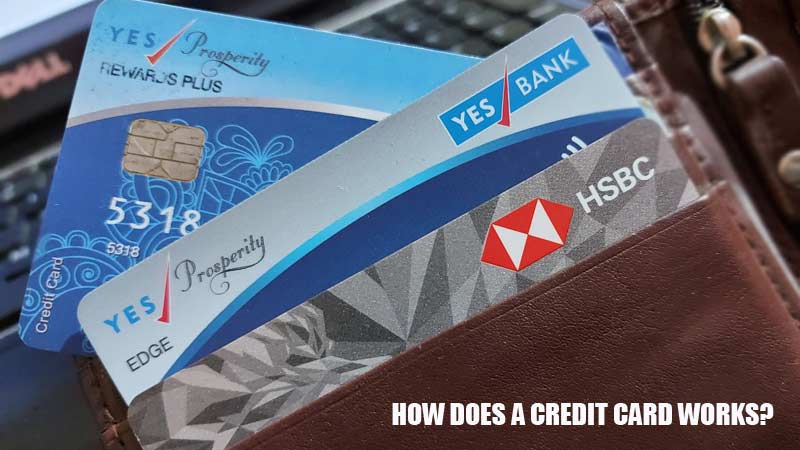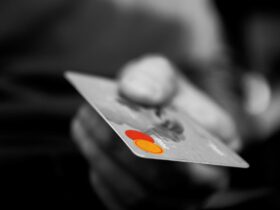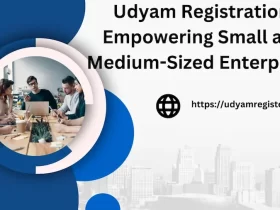A credit card is a payment card issued by financial institutions to enable the cardholder to borrow funds and pay a merchant for goods and services including other agreed charges. Credit cards are like short term loans, when you open an account, the credit card company gives you a set credit limit. This is essentially an amount of money you are allowed to use for purchases or making bill payments. Many credit card companies have their own credit card app through which the card issuers can manage their card transactions and get statements for the same. There are three types of credit card accounts. They are as follows:
- Bank-issued credit cards (such as Visa and MasterCard)
- Store/Priority cards (such as the Bay and Sears)
- Travel/Entertainment cards (such as American Express or Diner’s Club).
How does it work?
Credit cards are used for making online payments in stores or paying bills. When you shop online with a credit card your card details are sent to the merchant’s bank to process the transaction. Once your card is verified your transaction would get approved and the payment is made to the merchant and the amount paid gets deducted from the available credit.
At the end of every billing cycle, you will receive a credit statement of all the transactions made for that month. This statement also includes the new as well as the current balance, your minimum payments due, and your due date. Keep in mind that your credit card activity gets reported to the credit bureau, this means that credit cards can have a direct impact on your credit score.
Card Payment
Timely repayments for a credit card can help your score while paying late could hurt it. Similarly, keeping credit utilization low compared to your credit limit can have a positive impact while maxing out your card limits can harm your score. To avoid paying interest, on the payment you typically have to pay the credit balance in full on or before your due date. However, it is not necessary for you to pay back all of what you owe at once.
You must pay at least the minimum payment by the due date to avoid getting charged with a late penalty fee. The minimum balance may vary for all credit card issuers but you can find it in your credit card terms. It’s important to always pay at least the minimum amount due every month to maintain a good credit history and avoid late fees.
Many large stores or chains now offer their own credit cards, often providing discounts or rewards to their customers. It can be easier to be approved for this type of credit card, however, these cards usually have set terms and conditions such as limited usage at only select retailers. Major credit cards are issued by banks or other large financial companies through a credit card app. There are typically a large variety of credit cards offered to suit your needs.
If you are looking to apply for a credit card you can apply for it with the Finserv MARKETS app. Also, you can avail personalized choices for Cards, Loans, Insurance, UPI Payments & Investments, along with No Cost EMIs.











Leave a Reply